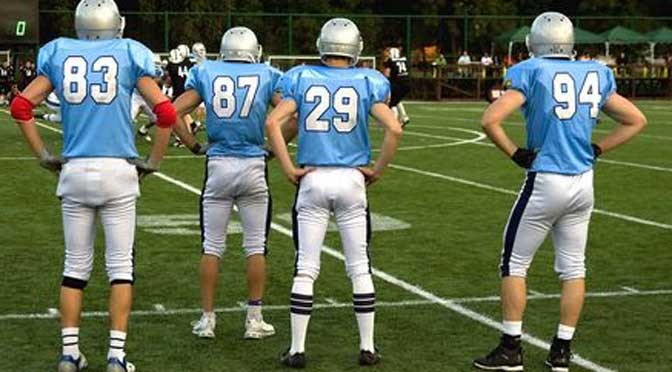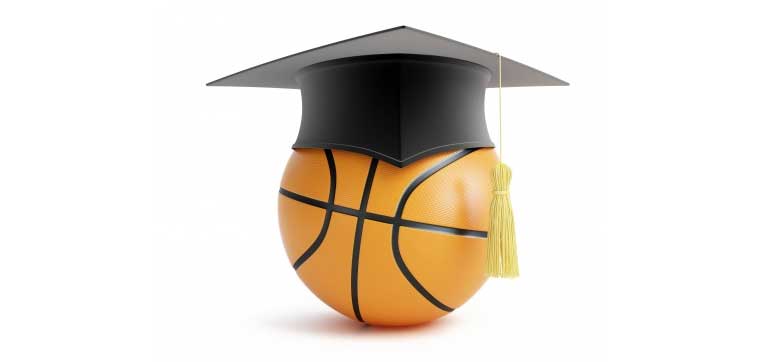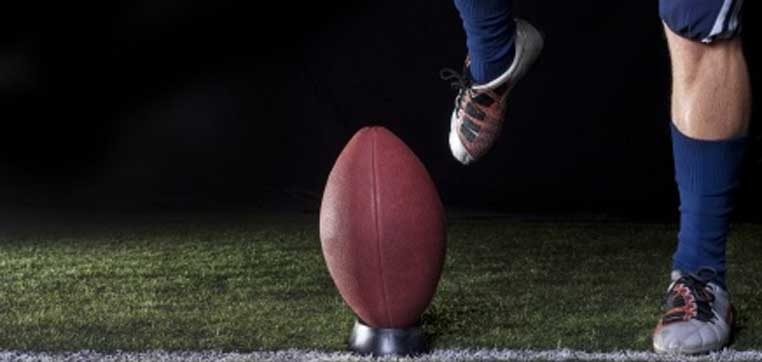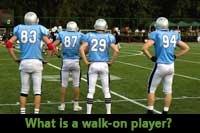 College athletes without a scholarship that play on a team that offers scholarships are generally referred to as “walk-ons.” Over time, the term has evolved such that now some people recognize three types of walk-ons. There are preferred walk-ons, recruited walk-ons, and just plain walk-ons. If you’re going to be a walk-on, “preferred” is definitely the way to go.
College athletes without a scholarship that play on a team that offers scholarships are generally referred to as “walk-ons.” Over time, the term has evolved such that now some people recognize three types of walk-ons. There are preferred walk-ons, recruited walk-ons, and just plain walk-ons. If you’re going to be a walk-on, “preferred” is definitely the way to go.
Baseball
Is Stacking Athletic and Academic Scholarships Allowed?
 The first thing you need to know is that athletic and academic scholarships can’t be stacked at D3 schools because they do not offer any athletic scholarships. Until recently, it was theoretically possible to do so at D1 and D2 schools but only if athletes met certain academic requirements. Otherwise, it was assumed that that athletes were just receiving academic scholarships, or institutional need-based aid, simply because they were athletes. What happened in cases where the athletes didn’t meet the academic requirements, the award money was counted against the total number of scholarships allowed for the team. It was complicated.
The first thing you need to know is that athletic and academic scholarships can’t be stacked at D3 schools because they do not offer any athletic scholarships. Until recently, it was theoretically possible to do so at D1 and D2 schools but only if athletes met certain academic requirements. Otherwise, it was assumed that that athletes were just receiving academic scholarships, or institutional need-based aid, simply because they were athletes. What happened in cases where the athletes didn’t meet the academic requirements, the award money was counted against the total number of scholarships allowed for the team. It was complicated.
3 Types of Players that Don’t get Recruited by Colleges
 There are a lot of athletes and their families that are expecting to play their sport in college. And far too many of them are actually counting on an athletic scholarship as part of their plan to pay for college. Yet, the truth is that most of these players won’t be recruited to play in college, much less get a scholarship because they make common recruiting mistakes. If you’re one of the following types of players, chances are you won’t be playing in college.
There are a lot of athletes and their families that are expecting to play their sport in college. And far too many of them are actually counting on an athletic scholarship as part of their plan to pay for college. Yet, the truth is that most of these players won’t be recruited to play in college, much less get a scholarship because they make common recruiting mistakes. If you’re one of the following types of players, chances are you won’t be playing in college.
Why My Spreadsheets Don’t Include the Coaches’ Email Addresses
 My College Athletic Spreadsheets do not include any coaches’ information. No email addresses for baseball coaches or phone numbers for softball coaches. I occasionally get requests to include the coaches’ email addresses but I have no intention of doing so. Why? Because athletes serious about getting recruited to play in college aren’t going to spam every college coach in their sport.
My College Athletic Spreadsheets do not include any coaches’ information. No email addresses for baseball coaches or phone numbers for softball coaches. I occasionally get requests to include the coaches’ email addresses but I have no intention of doing so. Why? Because athletes serious about getting recruited to play in college aren’t going to spam every college coach in their sport.
Using Baseball to Get Into College: The College Application Essay
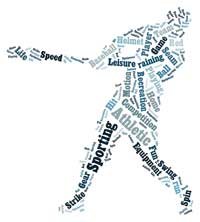 When people think of using baseball to get into college, they’re usually thinking about a coach offering a full-ride scholarship to play on the team. For those who still hold such delusions, time for a reality check. But there are still all sorts of ways baseball can help you get into college, including providing content for your college application essay.
When people think of using baseball to get into college, they’re usually thinking about a coach offering a full-ride scholarship to play on the team. For those who still hold such delusions, time for a reality check. But there are still all sorts of ways baseball can help you get into college, including providing content for your college application essay.
Should you tell coaches about an injury during the recruiting process?
 Just asking this question suggests that it’s possible to hide the injury from the college coaches. I suppose it’s possible to hide an injury during the recruiting process if it occurs off-season and the player isn’t actually on crutches or doesn’t have an arm in a sling. But how many sports today actually have an off-season? Even those players being recruited in sports that do have a limited season such as football are likely to be playing other sports. Don’t you think the recruiting coach might wonder why the player is sitting out his secondary sport?
Just asking this question suggests that it’s possible to hide the injury from the college coaches. I suppose it’s possible to hide an injury during the recruiting process if it occurs off-season and the player isn’t actually on crutches or doesn’t have an arm in a sling. But how many sports today actually have an off-season? Even those players being recruited in sports that do have a limited season such as football are likely to be playing other sports. Don’t you think the recruiting coach might wonder why the player is sitting out his secondary sport?
Must Read for High School Baseball Players and their Parents
 There is a post at the Next Level Baseball Player blog that all high school baseball players who want to play college baseball and their parents should read “A Raw Look Inside College Baseball Recruiting.” It’s an email from a coach at a D1 university responding to a father who asked why his kid isn’t good enough to play for the coach’s college baseball program.
There is a post at the Next Level Baseball Player blog that all high school baseball players who want to play college baseball and their parents should read “A Raw Look Inside College Baseball Recruiting.” It’s an email from a coach at a D1 university responding to a father who asked why his kid isn’t good enough to play for the coach’s college baseball program.
Who Pays for a College Athlete’s Health Insurance and Medical Care?
 If as a college athlete you don’t expect to make enough money from the Name, Image, and Likeness (NIL) rule to cover your own health insurance, don’t expect the NCAA to be picking up the tab. All college athletes are required by the NCAA to have healthcare insurance. The NCAA does not mandate colleges to pay the healthcare costs for athletes. Should a player be injured, the parent’s insurance is considered the primary insurance for paying for the athlete’s injury costs. This shouldn’t come as a surprise since the term “student-athlete” was created so that colleges wouldn’t be held liable for sports related injuries.
If as a college athlete you don’t expect to make enough money from the Name, Image, and Likeness (NIL) rule to cover your own health insurance, don’t expect the NCAA to be picking up the tab. All college athletes are required by the NCAA to have healthcare insurance. The NCAA does not mandate colleges to pay the healthcare costs for athletes. Should a player be injured, the parent’s insurance is considered the primary insurance for paying for the athlete’s injury costs. This shouldn’t come as a surprise since the term “student-athlete” was created so that colleges wouldn’t be held liable for sports related injuries.
How to Start the College Athletic Recruiting Process
 You’ve heard the saying, “you don’t know what you don’t know?” It’s relevant to college athletic recruiting–when starting out, many families don’t know where to begin or what to ask. So I put together this list of posts for athletes and their families just starting the college athletic recruiting process. After reading these, you should have a basic understanding of college athletic recruiting that will allow you to start asking the right questions.
You’ve heard the saying, “you don’t know what you don’t know?” It’s relevant to college athletic recruiting–when starting out, many families don’t know where to begin or what to ask. So I put together this list of posts for athletes and their families just starting the college athletic recruiting process. After reading these, you should have a basic understanding of college athletic recruiting that will allow you to start asking the right questions.

